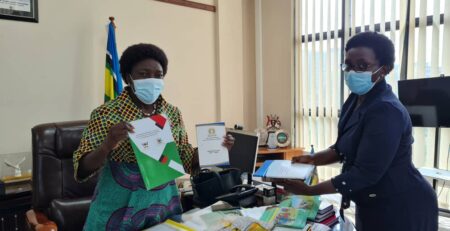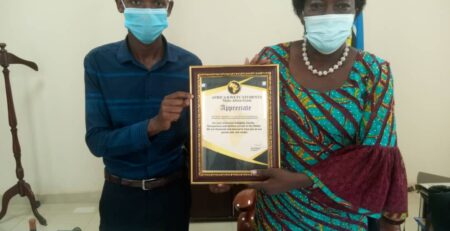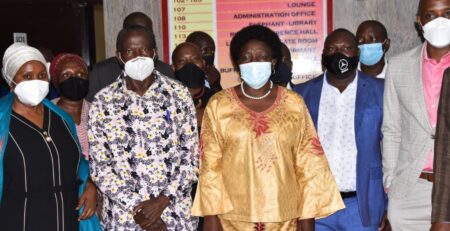East African Community to Review Social Protection Policy- Mrs Edith Mwanje Revealed
Bishop Samuel

Commissioner of Political Affairs, Ministry of EAC Uganda, Mr. Andrew Musiime
Through its Department of Social Affairs, the Ministry of East African Community (EAC) Uganda recently organized a two-day meeting with various Ministries, Departments, and Agencies (MDAs) and stakeholders at Protea Hotel in Kampala. The primary objective was to review the EAC Social Protection Policy draft.
In her opening remarks contained in a speech, conveyed by the Commissioner for Political Affairs at the Ministry of EAC Uganda, Mr. Andrew Musiime, the Permanent Secretary of the Ministry of EAC Uganda, Mrs. Edith Mwanje, emphasized the importance of developing the Social Protection Policy. She highlighted that this initiative underscores the necessity for the region to reduce and mitigate vulnerabilities, support coordination efforts, and enhance the financing of Social Protection programs.
The East African Community defines Social Protection, as articulated in its Child Policy (2018), as a collection of public policies, programs, and systems designed to help poor and vulnerable individuals and households reduce their economic and social vulnerabilities. Furthermore, Article 39 (1) of the EAC Common Market Protocol acknowledges the need for partner states to cooperate and harmonize their social policies. This cooperation aims to promote and protect decent work and improve the living conditions of citizens, thereby advancing the development of the Common Market.
Mrs. Mwanje also noted that the EAC’s initiatives on Social Protection align with the Council of Ministers’ Directive on Coordination of Social Security Benefits. This directive seeks to rationalize the concepts and provide rules and procedures for coordinating Social Security benefits within the framework of the free movement of workers and self-employed individuals. The goal is to enhance their standard of living and employment conditions.
Despite these efforts, several challenges persist in the region’s Social Protection landscape. Studies indicate significant variations in the coordination of Social Protection efforts, differing legal and policy frameworks, limited coverage and access, and low levels of domestic spending on Social Protection programs. These issues hinder the effective implementation and sustainability of Social Protection initiatives across the EAC.
In her concluding remarks, Mrs. Edith Mwanje expressed gratitude to development partners for their support at the regional level. She pledged continued collaboration at both regional and national levels to ensure the success of the Social Protection Policy.
END









